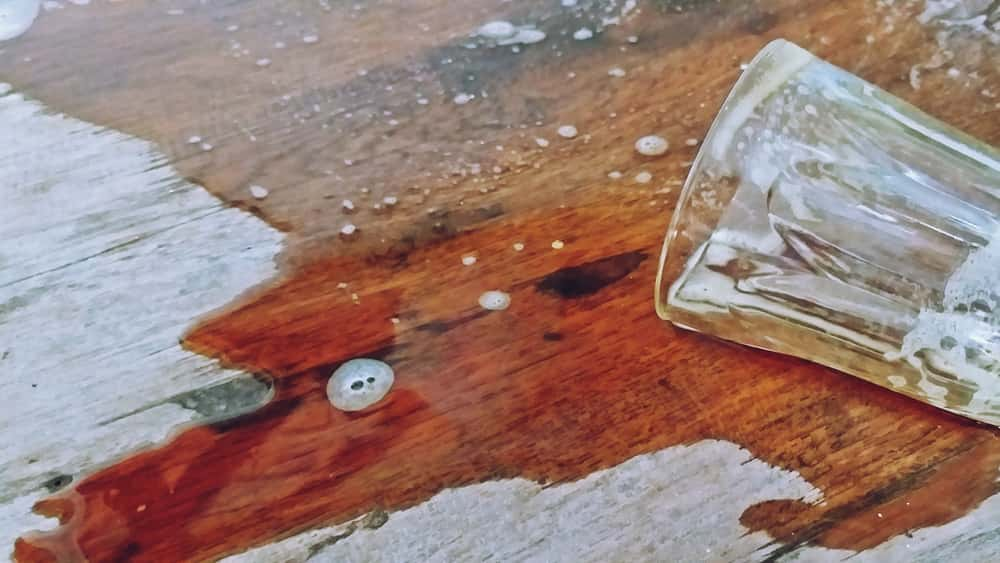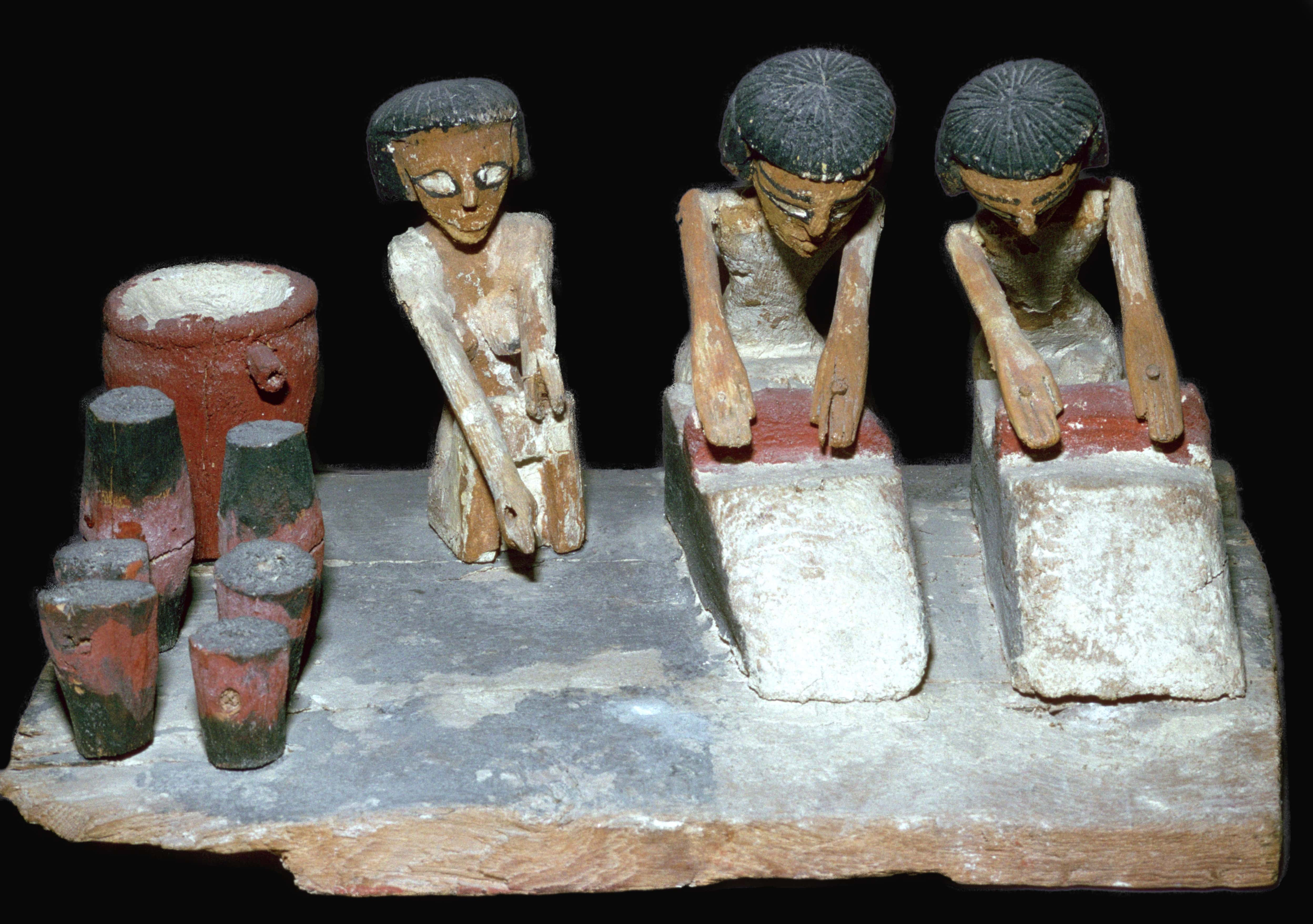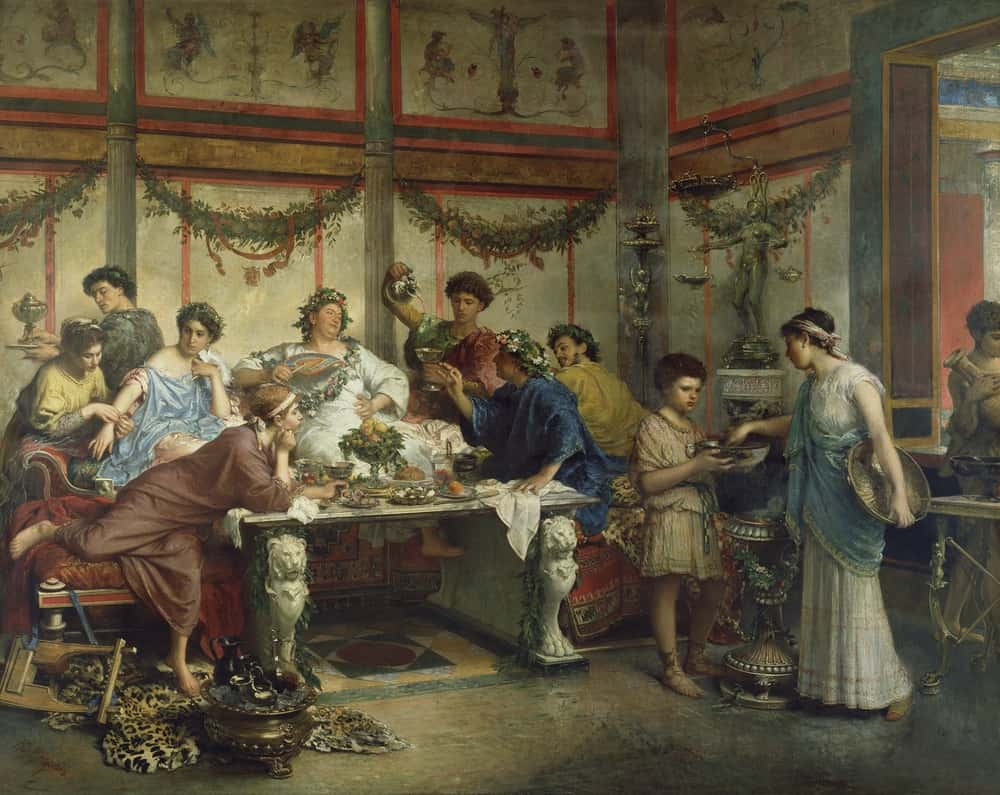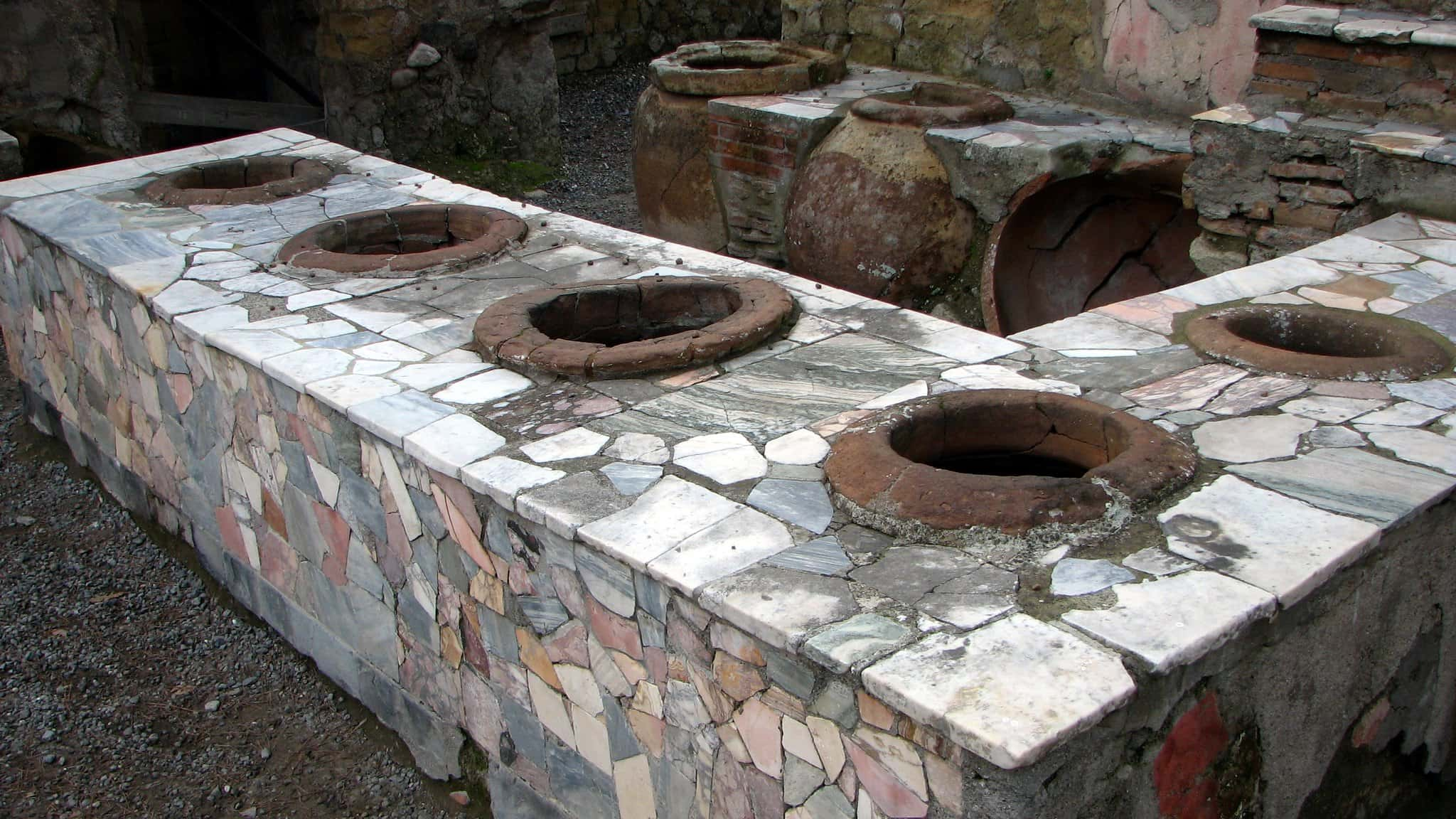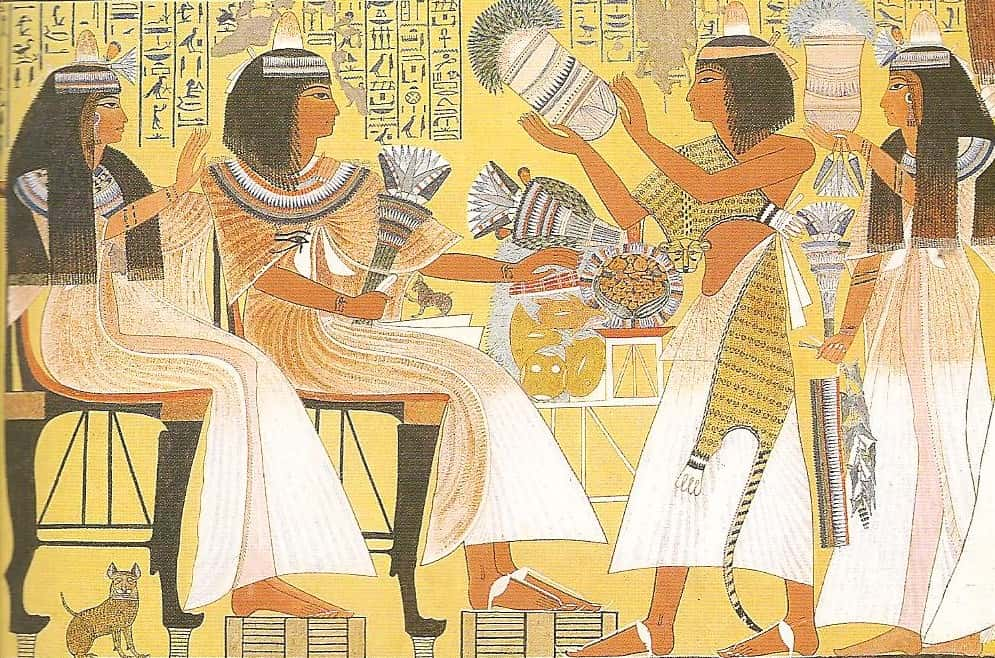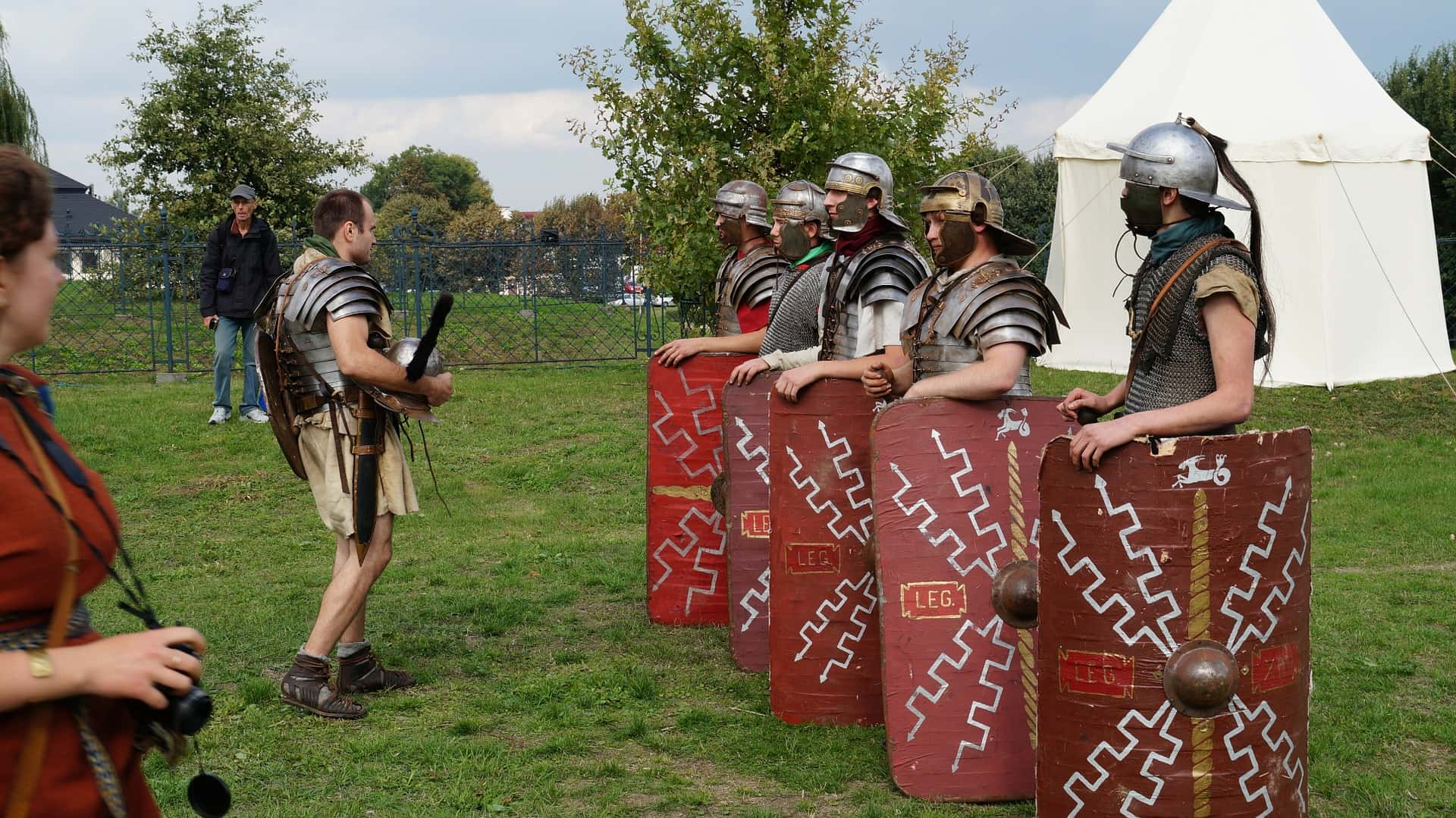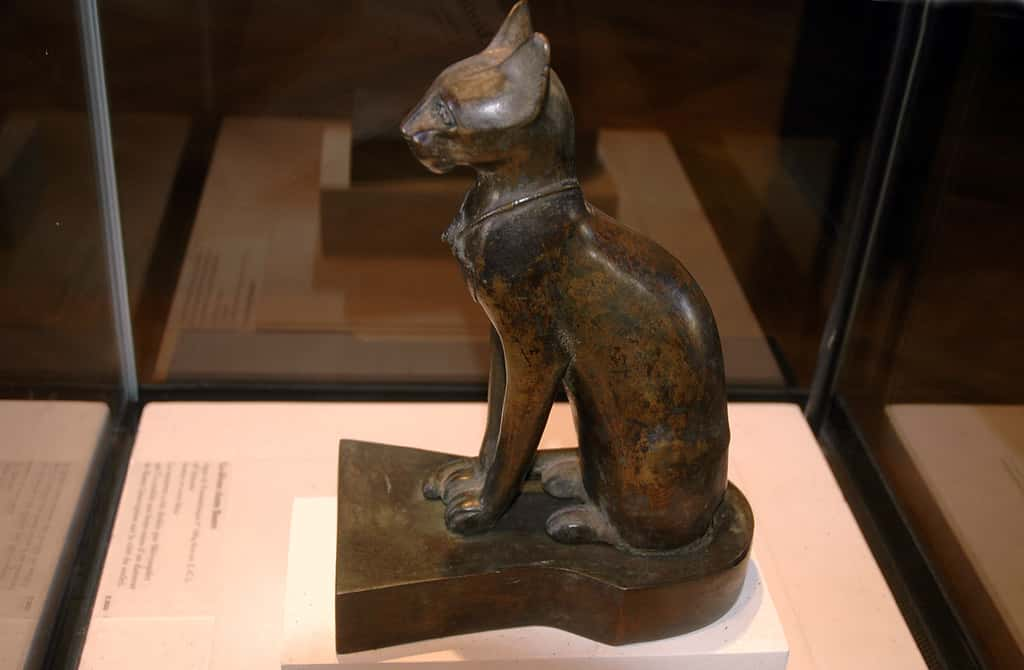Our ancient ancestors had their own habits; some were strange and bewildering, others were nearly identical to those we practice today. Looking back through history, one might be surprised to find the daily lives of the ancients weren't so unrecognizable. But then again, there are still plenty of ancient habits that leave us scratching our heads.
Habits of Ancient Peoples Facts
42. Ground-Breaking Discovery
Recently, archaeologists working in Italy’s Caverna delle Arene Candide found a heap of rocks. Not exactly headline news, but these rocks had been carried up from a nearby beach and broken in a consistent, uniform fashion, and similar-sized pieces had been taken from each onew. It appears that Neolithic Italians broke the rocks as a funerary rite—the rocks themselves may have represented lost loved ones, and breaking them symbolized the person dying.

41. Shake On It
The tradition of greeting another person by shaking hands dates at least as far back as the Ancient Greeks. One column at the Acropolis even shows the Greek goddess of marriage, Hera, shaking hands with the Greek goddess of wisdom, Athena.
40. A Little Pick-Me-Up
Nowadays we have Viagra and Cialis, but Pliny the Elder suggested a bevy of ancient Roman aphrodisiacs that reads more like a witch’s shopping list than a doctor’s prescription. To put the pep back in your step, Pliny suggested the yolks of pigeon eggs, in honey, mixed with hog’s lard, or sparrows eggs, or a lizard drowned in one’s own urine. If that didn't work, you could always wear “the right testicle of a cock.” I’ll pause long enough for you to stop giggling.
39. For The Ladies
Got it out of your system? Ok, moving on: For ladies with low libido, Pliny advised ingesting a vulture’s tongue, or wearing a patch of wool soaked in bat’s blood on top of the head. It seems so obvious, doesn't it?
38. Just ’Browsing
Nothing made a Greek woman feel more attractive than having a thick, swarthy unibrow. To the Greeks, the unibrow signaled a combination of beauty and brains. Greek women would go to great lengths to get that perfect forehead mustache, lining their brows with kohl or soot, or even using tree resin to affix fake eyebrows made of goats’ hair to their foreheads.
37. Of Corset Was!
You probably associate the fitted corset with those breathless Victorian women who, though they maintained their figure, looked constantly on the verge of fainting, but they weren't the first to wear them. The corset goes all the way back to the Ancient Minoan women of Crete, who wore similar restrictive bodices. The Minoan corsets were likely the first fitted garments ever worn.
36. To Be Taken With A Grain Of Salt
Popular superstition states that, if one should spill some salt, one can counteract the bad luck by throwing a pinch of salt over the shoulder. That practice actually goes all the way back to the ancient Assyrians. The superstition was passed on from them to the Egyptians, and then the Greeks, and the Romans, all the way to today.
35. Stairway To Heaven
The same is true of walking under ladders—the Egyptians came up with that one. Because a ladder leaning against a wall formed a triangle, representative of the holy trinity of Egyptian gods, to walk through was considered sacrilegious. Naturally, that superstation lent itself perfectly to the early Christians. I always just thought it was because you're likely to get something dropped on you if you walk under a ladder.
34. As It Nappens
Just like the Spaniards with their customary siesta, the Ancient Greeks would insist on taking a quick mid-day nap throughout the summer. One 5th century medical text advised that a brief nap around noon kept the body from “drying out.”
33. The Hogs
The Greeks and Romans employed an unlikely ally when they went on campaigns: Because their rivals in the east typically employed elephants, the Greeks and Romans enlisted the help of pigs, whose squeals terrified the giant beasts.
32. Pour One Out
Even if you're completely out of touch, you’ve probably seen a rapper “pouring one out” in a music video. Feel free to pour one out in memory of Pac or Biggie, but you should know the practice actually began with the Ancient Egyptians, who first spilled their drinks as a tribute to their god of the underworld, Osiris.
31. The Good Book
The practice of libations was continued by the Greeks. There is even mention of “pouring one out” in the Old Testament: Genesis 35:14 states “Jacob set up a pillar in the place where he had spoken with him [God], even a pillar of stone. He poured out a drink offering on it and poured oil on it.”
30. Breakfast Of Champions
While the pharaohs had no shortage of delicacies to choose from—fruit and honey and cured fish and all manner of roasted beasts—the Egyptian working class had a significantly shorter menu. The typical Egyptian breakfast consisted of bread, ale, and onions.
29. Sand Gets Everywhere
And sand. Lots of sand. Keeping sand out of their food was a huge problem for Egyptians, and coupled with their rough, fibrous diet and the fact that they had no real culture of dental hygiene, it meant that Egyptians of modest means usually suffered severe dental issues.
28. Chickening Out
Roman navies always kept chickens on board their ships, but they never intended to eat the birds. Rather, the chickens were offered cake. If the chickens pecked the cake, the Romans were sure to have luck in their upcoming battle. One Roman admiral, furious that his chicken wouldn’t peck, shunned superstition by throwing his chicken overboard and declared, “If it won’t eat, it can drink instead!”
27. The Stash
According to Herodotus, certain tribes to the east liked to throw bushels of marijuana on bonfires and enjoy a nice stone. As with a lot of stuff that Herodotus said, historians took this with a grain of salt, but in 2008 archaeologists discovered the tomb of a 2,700-year-old mummy in the Western Chinese province of Xinjiang. In addition to the mummy—presumably, a shaman of the Yuehzi people—was nearly 800 grams of marijuana, worth about $8,000 to modern consumers. Also found in the tomb, a stack of Bob Marley records and a poster bearing the phrase “Legalize It.”
26. A Different Period
To cope with severe menstrual symptoms, Roman women used tampons soaked in opium, while Egyptian men were allowed—and even encouraged—to take time off work to care for their menstruating wives or daughters.
25. Don’t Sweat It
After a big day at the Colosseum, Roman fight-goers liked to celebrate the trip by buying souvenirs. Gladiator sweat was a favorite, as was lard from the animals who had perished during the show. The sweat was mixed with olive oil and sold as a perfume. It was also considered a powerful aphrodisiac. I'll pass, thanks.
24. Decisions, Decisions
According to Herodotus, the rule of thumb among the Ancient Persians was if something was decided upon while drinking, all people involved must wait until they’ve sobered up, and decide again. Later writers added that, if something were decided while sober, the Persians would again put the decision under scrutiny by drinking and seeing if the idea held up. At least they covered all their bases!
23. Puking Party
As everyone knows, the Romans loved to party, but of course one can only party so much. The idea of any Roman feast was to eat and drink as much as physically possible. When a Roman began to feel too full, or too tipsy, it was socially acceptable, and even encouraged, to induce vomiting, thereby making room for more. It should be said, however, that it's a misconception that they had special rooms called "vomitoria" for this purpose. Vomitoria did exist, but they were special passages in theaters or auditoria designed to efficiently allow many people to exit at once. The name comes from the Latin word vomo, which means "to spew forth."
22. No Pants Allowed
The Greeks and Romans had pants, they just didn’t wear them. The Greeks thought they looked silly, and the Romans considered them “for the barbarians,” since they were customarily worn by Germanic peoples to the north.
21. Spitting Image
It wouldn’t be unusual to see a Roman spit on himself; it was something they did any time they encountered a mentally ill person or someone with epilepsy. Not only were these traits undesirable, they were considered contagious as well. By doing this, a Roman was protecting himself from the spread of a disease—an action that had no basis, even in Roman medicine, but remained a widely held superstition.
20. The Cure-All
For everything that spitting couldn’t cure, the Romans swore by "theriac." The compound, invented by Nero’s personal physician, was made of 64 different ingredients, including opium and viper flesh, and was said to cure everything from mild illness to the plague. Theriac remained a common item in apothecaries and pharmaceutical shops well into the 19th century, because if nothing works anyway, you might as well eat some snake parts.
19. Ancient Times
Punctual Romans carried around portable sundials, not unlike our more modern pocket watches. Each sundial came with specific instructions on how to use it based on one’s geographical coordinates and the season. But the Romans didn’t rely on a regular 60 minute hour like we do: rather, they followed the Egyptian example of keeping a 45 minute hour through the summer and a 75 minute hour in the winter. How could that not have confused people?
18. Fast Food
The Romans were a busy, on-the-go people, so it’s not surprising that, just like us moderns, they loved fast food. There were restaurants all over the Rome, many of them with windows that opened onto the street so customers could just order their food and go. I wonder if they had drive-thru windows for chariots?
17. Pompeiians Can’t Cook
There were more than 200 take-out restaurants in Pompeii alone. Taking dinner out was so common that many Pompeiian homes didn’t even have kitchens.
16. Vend Diagram
The Romans even had vending machines. Or at least they had the technology—the only known example, built by Roman-Egyptian inventor Hero of Alexander, was coin-operated and dispensed holy water.
15. Cone Heads
Long before the spray bottle was invented, the Egyptians developed a unique way to apply perfume. They wore tall cones of resin or ox fat on the top of their heads. The cones would be infused with aromatic oils and myrrh. As the balmy night wore on, the cones melted, leaving the Egyptians coated in fragrant oil. It was considered good hospitality to offer these cones to guests at a party.
14. The Best Part Of Waking Up…
Coffee came from Africa, tea from the far east. Neither seemed to have caught on among the Romans. Given the dearth of caffeinated beverages, the Romans began their mornings with a beverage made of goat poop and vinegar. I'll stick to my bean juice, thanks.
13. Just Do It
According to Pliny the Elder (this guy again...), the goat dung and vinegar beverage was especially popular among chariot racers; it was kind of like an ancient version of Gatorade. The emperor Nero personally endorsed the drink, saying that it gave him extra strength.
12. Urine Luck
The Romans used human urine in industries like leather tanning, and some of these companies even paid a “urine tax” for the privilege. But that’s not all: Urine was used by the Romans as a laundry detergent, a fertilizer, and even as a mouthwash. Because, you know, nothing makes your mouth cleaner than...
11. A Brush With The Egyptians
In this instance, at least, the Egyptians were centuries ahead of the Romans, and even ahead of pre-20th century Westerners. The Egyptians invented the toothbrush, and used it in conjunction with a toothpaste made of gum arabica, soot, and water that actually would have done an OK job.
10. Mint Condition
In fact, one 4th century Egyptian text offers a complete—though different—recipe for toothpaste: one drachma of rock salt, one drachma of iris flowers, 20 grains of pepper, and, of course, two drachmas of mint for kissably fresh breath. Hey, if it's not human urine, I'll take it!
9. Getting Around To It
Let’s talk about bad habits for a minute. Here in the modern world, many of us have trouble getting motivated—we tend to put off starting things, even if they’re important or good for us. But don't feel so bad, even our ancient ancestors struggled with procrastination. Putting off crucial business was so common in Ancient Greece that the Greeks had a word for it: akrasia, “the state of acting against one’s own interest.”
8. So Stupid, It’s Smart
One Greek statesman discovered a trick to help him defeat akrasia: Demosthenes shaved one side of his head (seriously). Funny, but how does it help? Demosthenes reasoned—rightly, perhaps—that he would be less tempted to go outside if he knew people would make fun of his stupid haircut. Rather than risk the mockery and taunts of his fellow Athenians, he stayed home and studied. Something to remember next time you’ve got a big exam coming up.
7. Moldy Medicine
The Ancient Egyptians applied moldy bread crusts to burns. This practice has also been found in ancient Greek, Chinese, and Serbian cultures. While none of these ancient cultures had any way to know specifically, they did seem to intuit that the microbes and antibodies active in the mold were good for fighting off infections.
6. An Eyebrow Raising Habit
Eyebrows were important to the Ancient Egyptians, as well. The passing of a household cat was a serious tragedy—the Egyptians literally worshipped the furry felines—and families would often demonstrate their grief by shaving their eyebrows off.
5. The Cat’s Pyjamas
Cats were idolized by the Egyptians because of their skill at catching vermin like rats and snakes, and because they also represented fertility. When a cat passed, even the cat of a laborer, it was given a noble burial, mummified, and laid to rest surrounded by pots of milk and mummified mice. We should all be so lucky.
4. Pretty Disrespectful
The practice of mummifying cats was so common that, over the course of the 19th century, British industrialists were able to import nineteen tons of mummified kitties for use as fertilizer.
3. Not Monkeying Around
Cats weren’t the only pets loved by the Egyptians; they were also known to keep monkeys. Big monkeys. Really big monkeys, like baboons, in fact. Baboons don’t live in Egypt—they had to be imported to Egypt specifically—but their popularity led them to develop a wealth of cultural and religious significance to the Egyptian people, and one was considered lucky indeed to have one of the simians in their home.
2. That Sucks!
In ancient Ireland, one showed submission to tribal kings by sucking their nipples. Bog-bodies (ancient corpses found well-preserved by the chemicals in a bogs) have been found with slashed or mutilated nipples, indicating that they had been driven from the throne.
1. The Romans Treated Their Kids Like Garbage
Roman families did have adoption practices—even Julius Caesar adopted his great-nephew Octavian, later known as Augustus—but it was mostly a way for the wealthy Roman elite to ensure they had an heir. For poorer families, unwanted children were often just left at the dump. If those unwanted babies didn’t die, they were usually taken to be raised as slaves.
Sources: 1, 2, 3, 4, 5, 6, 7, 8, 9, 10, 11, 12, 13, 14, 15, 16, 17, 18, 19, 20, 21, 22, 23, 24, 25, 26, 27, 28, 29, 30, 31, 32











